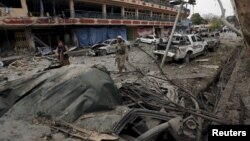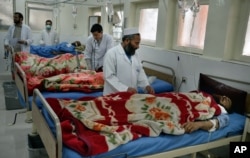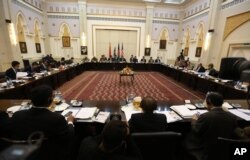The International Committee of the Red Cross (ICRC) said Friday that 2015 had increased violations of humanitarian law and principles by all sides to the conflict in Afghanistan, undermining delivery of much needed assistance to the war victims.
The violations hampered efforts to direct humanitarian activities in a neutral, impartial and objective way, ICRC President Peter Maurer told reporters in Kabul at the end of a five-day visit to the country.
"We also look back to a year where, once again, we have seen more hospitals attacked, more medical workers and doctors attacked, more medical facilities overall attacked, more difficulties for civilians and arms bearers to get treated according to international humanitarian law," Maurer said.
Maurer called for more international attention and involvement in addressing critical economic, health, shelter, water, sanitation and food security challenges facing Afghans, without waiting for a political solution to the war.
Heavy civilian toll
The United Nations says last year, the conflict caused more than 11,000 civilian casualties, including around 3,500 dead, and that women and children were among them. The number of civilian casualties is the highest since 2009, when the U.N. mission in Afghanistan began documenting them.
“The conflict here in Afghanistan seems to defy any human logic because the more victims we see, the less attention the international community seems to bring to this conflict,” the ICRC president said.
Maurer also added his voice to international calls for the Afghan government and Taliban-led insurgent groups to urgently find a negotiated and sustainable settlement to the devastating conflict.
The Afghan government was expected to open peace negotiations with the Taliban earlier this month, but in a last-minute announcement, the insurgent group refused to attend, citing certain preconditions, including the withdrawal of all U.S.-led foreign forces.
“It is our assessment that no sustainable response can be found unless there is a credible and stable peace process and peaceful solution in place,” Maurer said. "Pending a political solution, international humanitarian law must be respected and neutral and impartial organizations must be able to work."






